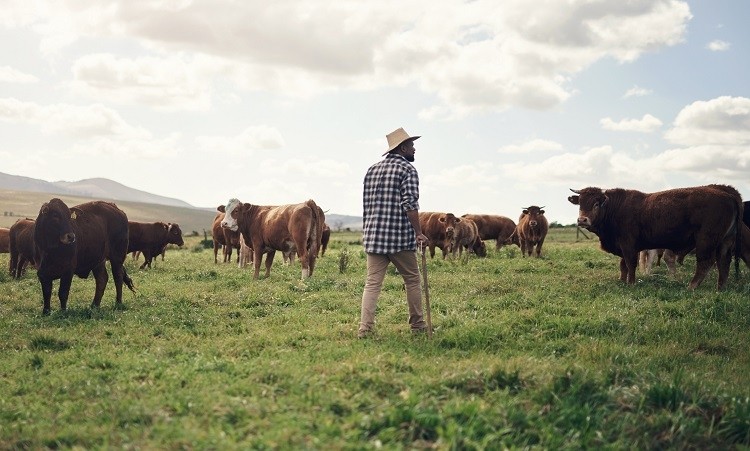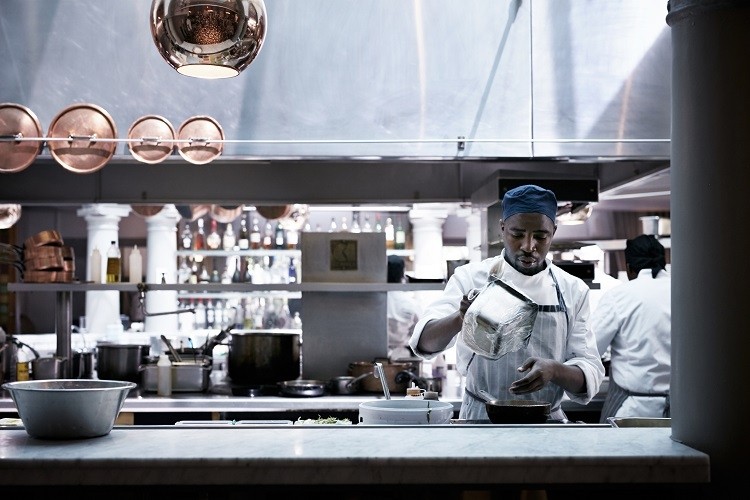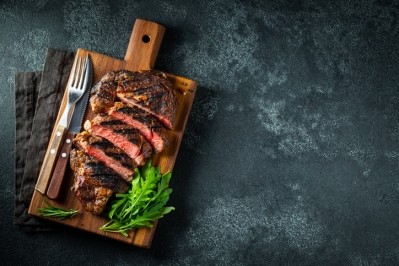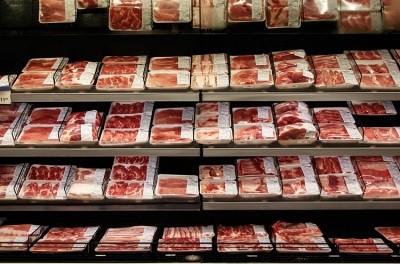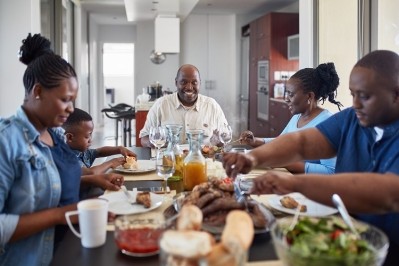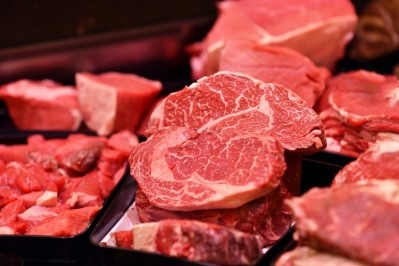Africa’s first cultivated meat company targets food security, land use, and subsistence farmers’ livelihoods
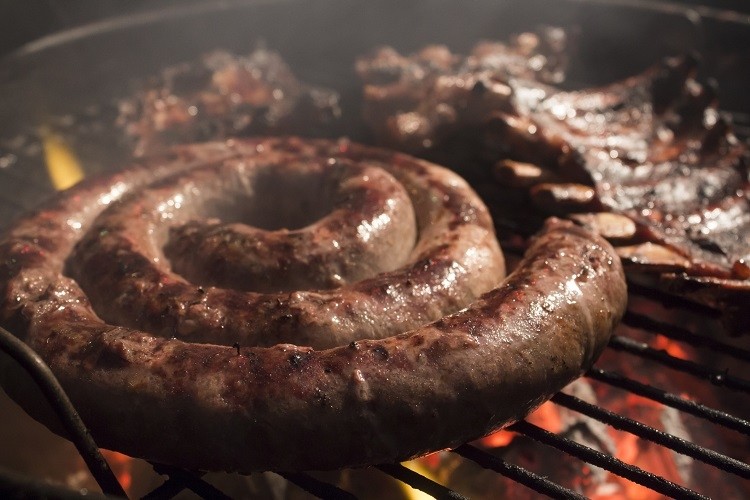
When asked what prompted the move away from animal agriculture, cultivated meat producers often cite similar driving factors.
Responsible for 14.5% of global greenhouse gases (GHG) emissions, animal agriculture is a key factor in biodiversity loss, freshwater use, and pollution. It has also been associated with poor animal welfare conditions.
Further, occupying 70% of agricultural land, innovators are looking at how more protein can be produced with fewer natural resources, to feed an estimated 9.8 billion mouths by 2050.
For South African cultivated meat start-up Mzansi Meat Co., drivers include all this and more. “In South Africa, what is particularly relevant is food security, and the fact that people are not eating enough protein in some areas,” explained co-founder and CEO Brett Thompson.
Indeed, according to recent Unicef data, chronic malnutrition is an underlying cause for half the childhood deaths in South Africa, with one in three children stunted and 30% living in households with little or no access to a daily healthy diet.
“This is a big driver for us,” he told FoodNavigator. “We’re trying to find high quality protein that is going to meet the demand of a growing and young nation. Our population is 60 million and it’s going to get bigger, so how do we do that in a way that isn’t going to encroach on our natural habitat?
“South Africans are very patriotic when it comes to our wildlife and agriculture – therefore once it starts expanding it requires new land. So the potential for cellular agriculture to reduce the burden on our land is massive.”
Mzansi’s approach to protein innovation is therefore ‘slightly different’ to its competitors, the CEO suggested. “We’re looking at food security, nutrition, and land use. These are key problems within our country, and we want to be part of the solution.”
From boerewors to Ankole
The start-up’s first cultivated meat products will come in the form of a beef burger and a South African fresh sausage known as ‘boerewors’. The common thread amongst Mzansi’s portfolio – even as it expands – is that all products can be cooked on an open flame. This aligns with the South African social custom of ‘braai’ – meaning a barbecue or grill.
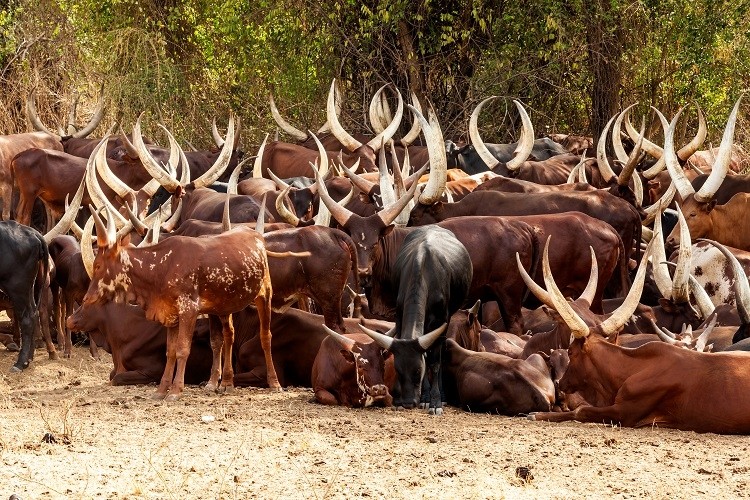
Boerewors translates as ‘farmer’s sausage’ in Afrikaans. “It’s made up of 70% ground meat – predominantly underutilised cuts,” explained Mzansi’s public relations officer Absie Pantshwa. “Then, we add a good percentage of about 22-25% fat. The specifics of the boerewors is its unique spice. Nobody will ever tell you what their family recipe is, but it’s nice and smoky,” she explained.
“Argentinians would say it’s similar to their chorizo, but it’s more beef than pork.”
In the future, Mzansi hopes to expand its portfolio, still in align with the braai custom. That could mean lamb chunks, or, in a self-proclaimed ‘cheeky’ move on Mzansi’s behalf, it could mean borrowing cells from the South African President Cyril Ramaphosa’s prize winning Ankole cattle to produce products made from ‘the most famous and sought-after breed in all the land’.
“Ankole is the crown jewel of the continent when it comes to cattle breeding,” Pantshwa explained. “It would be pretty awesome for us to get a sample of that kind of cattle…”
Bringing subsistence farmers into the formal economy
Another way Mzansi is setting itself apart in the cultivated meat landscape is via its work with subsistence farmers – defined as those that use their small land holdings to produce enough for their local consumption.
The majority (approximately 2.7 million) of South Africa’s farming population is engaged in subsistence agriculture.“We plan on working with conventional farmers,” explained Thompson. “If we want to get to scale, we will have to work with everybody.”
The goal here, aside from achieving scale, is to help bring subsistence farmers into the formal economy. In this way, cellular agriculture will not be excluding its conventional counterparts. “We believe that cellular agriculture offers the opportunity to individuals who have small cattle, but who can’t sell into slaughterhouses because of their size and the regulations,” the CEO told this publication.
“We would be able to take some cells from them, and get them a new type of revenue stream that will ultimately benefit them, and benefit us, but having a local brand that we sell through the country and even abroad.”
Pricing down, scaling up, and regulation
All cultivated meat producers, no matter the geography, are facing similar challenges: that of reducing costs, scaling up production, and receiving regulatory approval for commercialisation.
Mzansi is no different, with plans to reduce cost as it scales. “As with many international companies in the space, the main cost factors we’ll have to consider, outside of the more traditional overheads, is growth media and production-scale bioprocessing equipment,” explained co-founder and COO Jay Van Der Walt.
The start-up has already started planning its own production of culture media in-house, using sterilised, food-safe bulk constituents. “Just this one step will drive down costs exponentially. Some initial calculations show that we’ll be able to progressively bring the cost down to less than $5 per litre vs around $80 per litre at the moment.”
Concerning bioprocess scale-up, Mzansi is currently building its own benchtop bioreactor and will work on a slight larger vessel soon, the COO revealed. “Furthermore, we plan to explore possible decentralised production models in an effort to leverage economies of scale whilst potentially being able to avoid the massive cost of 1000L+ bioreactors.”
Just one geography to date has approved commercialisation of cultivated meat: earlier this year, Singapore okayed the sale of Eat Just’s cultivated chicken ingredient.
As the first cultivated meat company in Africa, Mzansi has been working on regulation for around 18 months – almost since its inception in March 2020. Thompson revealed he is quietly confident, however, that South Africa’s regulatory system will be easier to navigator than that of other countries around the world.
“Essentially, South Africa doesn’t have the Food and Drug Administration (FDA), or the European Food Safety Authority (EFSA). There isn’t a centralised body,” he explained, suggesting the structure is slightly more fragmented.
Rather, South Africa has three large bodies that look after food for the region. Working within these structures, Thompson said he is ‘encouraged’ Mzansi will be able to sell and distribute cultivated meat ‘without a big headache’. “We’re trying to follow the international timelines,” he continued, suggesting a late 2022-early 2023 launch.
Sales channels and geographical expansion
Mzansi plans to first target restauranteurs, before moving into retail. According to Pantshwa, this is the best way to introduce consumers to new products and ingredients.
“Everywhere you go, a new food item or ingredient becomes popular by a chef using it. That’s when people gain interest and get into it,” she told this publication. “So it makes sense to start with restaurants, and then go into retail – which would then obviously make it massively available to consumers.”
Concerning expansion plans, the start-up plans to first address the South African meat market – starting in urban areas before ‘pushing it out’ into the rest of the country. From there, Mzansi will start looking abroad, but keeping within the continent. Markets of interest include Kenya, Nigeria, and Egypt, as well as areas ‘that are still a bit protein scarce’, such as Malawi, Zambia, and Tanzania.
Having commissioned a consumer survey, conducted by North Mountain Group, Mzansi is confident earlier adopters of its cultivated meat product in South Africa will be members of the young, black community. While being in the low-income category, Pantshwa explained they are ‘well versed in terms of global trends’.
“The same goes for Singapore. The first people that came to try the cultivated chicken were very young, very forward thinking, globally versed group of people. So that’s where we are as well.”
